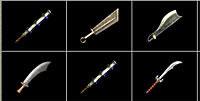 In 2004 the networking giant Cisco sued a little-known Chinese company called Huawei for IP (Intellectual Property) theft. Some two months later the case was dropped and settled out of court. Huawei promised to modify their designs, change their software and manuals. Rumours circulating at the time alleged that the Chinese government got involved and told Cisco that if they wanted to operate in China, they should leave Huawei alone.
In 2004 the networking giant Cisco sued a little-known Chinese company called Huawei for IP (Intellectual Property) theft. Some two months later the case was dropped and settled out of court. Huawei promised to modify their designs, change their software and manuals. Rumours circulating at the time alleged that the Chinese government got involved and told Cisco that if they wanted to operate in China, they should leave Huawei alone.
Huawei was started by People’s Liberation Army officer Ren Zhengfei in 1988, specialising in the research and development of communications systems.
In the west the initial push has been towards core networking equipment for carriers and ISPs (markets which have historically been dominated by Cisco). In this market, Cisco’s normal approach was to offer a base product, then charge extra for additional software feature sets. Huawei’s approach is …. more generous, they include the all of the ‘extras’, while pricing the system around 60% of what Cisco charges for the base platform alone.
Support – throwing people at it
Low, all-inclusive pricing isn’t Huawei’s only winning approach.
If a large customer of Cisco reports a problem, it goes into their tracking system and the customer might be lucky if it’s looked at in a few days. If it’s identified as a bug, it might take a few weeks to isolate and fix.
 In China engineering talent is relatively cheap and their universities produce very high class students (and lots of them). This brings Huawei another advantage – huge manpower. When bugs are passed to Huawei, they go to their pool of, something like, 20,000 engineers, leading to the faults being tracked and fixed extremely quickly.
In China engineering talent is relatively cheap and their universities produce very high class students (and lots of them). This brings Huawei another advantage – huge manpower. When bugs are passed to Huawei, they go to their pool of, something like, 20,000 engineers, leading to the faults being tracked and fixed extremely quickly.
The Big Boys are buying Huawei too
Slowly Huawei started to make big inroads into the high-end markets. BT has even selected them as part of their 21st Century Network, (21CN). It’s rumoured in the market, that this will lead to the demise of Marconi (who failed to be selected, even though they’d been a partner of BT for decades).
Cisco – that’s just the start
If you’re in any form of communication business, don’t kick back and think, “Well Cisco needs a competitor. We should be OK.” Huawei’s plans extend far beyond merely eating Cisco’s lunch.
If you get a chance to wander into Huawei’s showroom in China, you may be lucky enough to get taken into a hangar the size of a football field. In one small area there’s the ISP/Telcocore kit, we’ve mentioneed. The rest of the space is filled with other technologies such as IN (Intelligent Network – the brains behind telco voice networks), GSM, GPRS, Edge, 3G, NGN (Next Generation Networks i.e. IP-based voice and data networks like BT’s 21CN), xDSL (both end-user and network), optical (driving fibres), routers and LAN switches and of course consumer devices for it all.
Huawei are currently supplying all sorts of companies. Ever wondered who makes the new USB 3G datacard for Vodafone (the USB one that works on Windows, Mac and Linux)? Huawei.
Initially Huawei picked a ‘small’ market to concentrate on, but now they’re ready to attack the bigger ones. They have the equipment, and the resources to make a huge dent into the existing players markets of all sorts. It won’t just be Cisco suffering.
Huawei
 The month of May saw a month-long crackdown on Internet porn in China. The combined forces of 10 ministries lead the closing of 300 domestic porn and ‘salacious’ sites being closed down.
The month of May saw a month-long crackdown on Internet porn in China. The combined forces of 10 ministries lead the closing of 300 domestic porn and ‘salacious’ sites being closed down. The DSL Forum today announced that the total number of DSL connections worldwide has exceeded 200 million at the World Broadband Forum in Beijing.
The DSL Forum today announced that the total number of DSL connections worldwide has exceeded 200 million at the World Broadband Forum in Beijing. In 2004 the networking giant Cisco sued a little-known Chinese company called Huawei for IP (Intellectual Property) theft. Some two months later the case was dropped and settled out of court. Huawei promised to modify their designs, change their software and manuals. Rumours circulating at the time alleged that the Chinese government got involved and told Cisco that if they wanted to operate in China, they should leave Huawei alone.
In 2004 the networking giant Cisco sued a little-known Chinese company called Huawei for IP (Intellectual Property) theft. Some two months later the case was dropped and settled out of court. Huawei promised to modify their designs, change their software and manuals. Rumours circulating at the time alleged that the Chinese government got involved and told Cisco that if they wanted to operate in China, they should leave Huawei alone. In China engineering talent is relatively cheap and their universities produce very high class students (and lots of them). This brings Huawei another advantage – huge manpower. When bugs are passed to Huawei, they go to their pool of, something like, 20,000 engineers, leading to the faults being tracked and fixed extremely quickly.
In China engineering talent is relatively cheap and their universities produce very high class students (and lots of them). This brings Huawei another advantage – huge manpower. When bugs are passed to Huawei, they go to their pool of, something like, 20,000 engineers, leading to the faults being tracked and fixed extremely quickly. We have to say that if we strutted down the local boozer with an MP3 player strapped on around our neck, we’d most likely be called a lot of things – some of which might just rhyme with ‘Anchor’ – but, hey! – what do we know about yoof product design?!
We have to say that if we strutted down the local boozer with an MP3 player strapped on around our neck, we’d most likely be called a lot of things – some of which might just rhyme with ‘Anchor’ – but, hey! – what do we know about yoof product design?! Dominating the iRiver is a large, 4 Line, 16 tone greyscale OLED screen, which displays EQ settings, track listings and folder views, and also doubles up as a clock/alarm clock.
Dominating the iRiver is a large, 4 Line, 16 tone greyscale OLED screen, which displays EQ settings, track listings and folder views, and also doubles up as a clock/alarm clock. There’s also an FM radio onboard – pretty crucial, that – with iRiver quoting a MP3 playback battery life of around 13 hours per charge (128kbps, MP3, volume level 20, EQ Normal, LCD Off).
There’s also an FM radio onboard – pretty crucial, that – with iRiver quoting a MP3 playback battery life of around 13 hours per charge (128kbps, MP3, volume level 20, EQ Normal, LCD Off). Details of a snazzy new range of Sony flash memory MP3 player/FM radios with a colour display have appeared on Sony’s Chinese site.
Details of a snazzy new range of Sony flash memory MP3 player/FM radios with a colour display have appeared on Sony’s Chinese site. Sporting attractively bijou dimensions of 75.5mm x 45.5mm, the CE-P is smaller than a credit card (but not as thin, natch) and is designed for carrying around your neck, gangsta-stylee.
Sporting attractively bijou dimensions of 75.5mm x 45.5mm, the CE-P is smaller than a credit card (but not as thin, natch) and is designed for carrying around your neck, gangsta-stylee. The CE-P series will come in three flavours, offering storage capacity from 256MB to a 1GB.
The CE-P series will come in three flavours, offering storage capacity from 256MB to a 1GB. It was with great disappointment and a heavy heart that we heard that Google had compromised their search results in China, excluding results the Chinese government didn’t find acceptable. In effect becoming the government’s censor.
It was with great disappointment and a heavy heart that we heard that Google had compromised their search results in China, excluding results the Chinese government didn’t find acceptable. In effect becoming the government’s censor. It’s not that we think that people will stop searching on Google, it’s just that they won’t trust Google implicitly any more
It’s not that we think that people will stop searching on Google, it’s just that they won’t trust Google implicitly any more The big news late yesterday was that Google announced a second round share offer – on the first anniversary of their IPO.
The big news late yesterday was that Google announced a second round share offer – on the first anniversary of their IPO. Mary Meeker from Morgan Stanley clearly feels the same, “this cash balance could allow the company increased flexibility to consider large strategic acquisitions.”
Mary Meeker from Morgan Stanley clearly feels the same, “this cash balance could allow the company increased flexibility to consider large strategic acquisitions.” China has opened its first officially licensed clinic for Internet addiction as State media reports growing cases of obsessed Internet gamers whose addiction has caused them to quit school, commit suicide or
China has opened its first officially licensed clinic for Internet addiction as State media reports growing cases of obsessed Internet gamers whose addiction has caused them to quit school, commit suicide or  A coalition of government policy makers, technology and broadband companies from China have rocked up to the NAB2005 Media Show in Las Vegas.
A coalition of government policy makers, technology and broadband companies from China have rocked up to the NAB2005 Media Show in Las Vegas. In a shocking example of virtual life crashing into real life, a Shanghai online game player stabbed his gaming pal in the chest multiple times after he learned that he had stolen approximately US$870 (£462/€671) from the sale of a powerful “dragon sabre”, jointly owned by both players.
In a shocking example of virtual life crashing into real life, a Shanghai online game player stabbed his gaming pal in the chest multiple times after he learned that he had stolen approximately US$870 (£462/€671) from the sale of a powerful “dragon sabre”, jointly owned by both players. Still fuming, Chengwei popped around to have a word with Caoyuan who didn’t convince with his promises to pay him for the sword.
Still fuming, Chengwei popped around to have a word with Caoyuan who didn’t convince with his promises to pay him for the sword. However, online game companies in Shanghai – the city with the most players – are planning to set up a dispute system where aggrieved players can find recourse.
However, online game companies in Shanghai – the city with the most players – are planning to set up a dispute system where aggrieved players can find recourse.